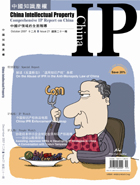
On Oct.12, 2007, the “2007 Tsinghua Open and Innovation Summit”, sponsored by Tsinghua University and assisted with by IBM,  was held at Tsinghua University. Dignitaries, eminent persons and celebrities from the political, business and academic communities assembled at the forum and probed into the vital role of IP protection in developing China’s economy and society. The forum’s two major topics were: Open standards and Appropriate IP protection.
was held at Tsinghua University. Dignitaries, eminent persons and celebrities from the political, business and academic communities assembled at the forum and probed into the vital role of IP protection in developing China’s economy and society. The forum’s two major topics were: Open standards and Appropriate IP protection.
Innovation is the Essence of International Competition
In this new period of interactive economic globalization and new revolutions in science and technology, international competition is essentially a “war of innovation”. Mr. Duan Ruichun, Chairman of the Supervisory Committee of the State-owned Assets Supervision and Administration Commission, said, “Powerful groups and multinational corporations have completed the new circle of structural readjustment, industrial upgrade and process reconstruction. From the perspective of the establishment of an industrial value chain both in China and the rest of the world, there are two highlights appearing: one is pre-production research and development, in which the possession of IP will help facilitate the development of advanced technology; the other is post-production marketing, in which the building of a famous brand in the market will gain fat profits for its owners. The upper level of innovation’s shock waves has extended to the basic fields, the middle level covers the whole R&D and production processes, and the lower level has penetrated into every marketing and service stage…” Such a violent innovation war has swept across the whole world, and has involved more and more individuals and organizations. From here, we can easily understand why IBM treats “innovation” as one of its most essential core businesses.
Innovation Needs an Open Standard
Innovation is a hallmark of economic knowledge. It not only stands for the provision and acquisition of all information and technology, but also highlights the necessary global cooperation among enterprises, governments and research institutes to create new value. As a result, an open standard has gradually become the core of innovation and new economy. As for the definition of open standard, according to Mr. Bob Sutor, vice president of IBM, a private standard may only have one definition, but an open standard may have more than 200. There are many transitional periods from conservative openness to full openness. Professor Wang Bing, Director of Research Center of IP Law of Tsinghua University’s School of Law, said that an open standard means that the drafting process, formulating procedures and the content of the standard were open to the public. Viewed from the perspective of the Chinese market, the essentials for an open standard include three points. Firstly, the drafting standard is transparent and open to all interested parties; secondly, the intellectual property involved with the standard is granted based on the principle of impartiality and nondiscrimination; thirdly, the permissive condition is not a unilateral decision by the IP owner. With the development of information technology, the relationship between technical standards and IP is becoming closer, which greatly enhances the status of IP owners. As a result, the drafting of standards is actually a game participated in by all the interested parties.
Balanced IP Protection
"Balanced IP Protection is not a new topic. Since its establishment, the IP system has been an object for people's discussion and practices", said Lv Guoliang, Chief Secretary of the International Cooperation Department of SIPO, on behalf of Tian Lipu, who is the director of SIPO. An IP system itself will balance the interests of the right owners, users and the general public. Along with the changes over time, however, new variations constantly derive from old subjects. Now we are faced with more, instead of less, challenges on the balancing of IP protection. Henry Chow, President of IBM Greater China, expressed that it was of vital importance for the healthy development of the economy to maintain a balanced favorable IP protection policy. Here, balance is to be achieved by promoting the establishment and implementation of an "open standard" on the one hand, and by protecting patented IP on the other. Only the balance between these two criteria will activate innovations and help Chinese companies create new value and more effectively participate in international competition.
Since innovation, open standards and IP protection cannot be dispensed with, how can we coordinate the relationship among them? Professor Wang Bing said that against the developing trend of openness, collaboration, globalization and inter-relationships between different disciplines, discussions on cooperation and innovation, open standards and appropriate IP protection involving governments, enterprises and academic communities will help us straighten out their relationships and identify individual development trends. When the governments or enterprises try to balance the relationship between the open standard and intellectual property, they shall start by supporting Chinese companies to create new value to more effectively participate in global competition, and abide by the principles of “openness, innovation and competition” through all their activities. Henry Chow, in his capacity as a business representative, also said that the purpose of holding this “open and innovation summit” was to concentrate the mental efforts of governments, academic communities, industries and enterprises to avoid ideological conflicts on such hot topics as “open standards” and “IP protection”, to assist enterprises in developing and consolidating their competitiveness, and to put them in a better position for international competition.
Besides the topic of “open standard and balanced IP protection”, this one-day forum also addressed three other topics; “improving the quality of patents”, “intellectual property and enterprises’ innovation”, and “transforming IP into monetary wealth under the globalized economy”.
(Translated by Hu Xiaoying)
|
Copyright © 2003-2018 China Intellectual Property Magazine,All rights Reserved . www.chinaipmagazine.com 京ICP备09051062号 |
|
|



